How does stress affect the body? Stress and anxiety trigger the fight or flight response; our body’s bloodstream is flooded with an overload of the stress hormones cortisol and adrenaline. As a result, it causes an increase in your heart and breathing rate, and blood pressure rises. The body-mind reaction to stress is getting more oxygen to the brain and muscles, preparing you to respond appropriately to an intense situation andthe perceived action. Long-term stress and anxiety create havoc on our bodies, causing illness and disease.
Designed to Protect You– How does stress affect the body?
The Mind-body response is designed to protect your body. Preparing you to act quickly, but when you are stuck in this stress response of up and down, and day after day, it can put your health at serious risk.
How does stress affect the body?
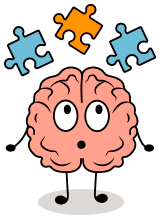
- Tension Headaches– Stress can trigger and intensify tension headaches.
- Insomnia-When over-stressed, we can’t shut our brain down. Racing thoughts of worry keep running amuck in our minds. Inhibiting us from falling asleep, even after falling asleep, it is hard to stay asleep, which leads to insomnia.
- Depression or Increased Depression– Chronic stress wears you down emotionally and leads to depression or worsening depression symptoms.
- Weakened Immune System– Long-term stress weakens your immune system’s defenses. Therefore, leaving you more vulnerable to infection and other illnesses.
- Risk of Heart Attack– Over time, pumping these overachieving stress response chemicals through your body with an increased heart rate and high blood pressure can damage your arteries and lead to a heart attack.
- Rapid Breathing- When you experience stress, your breathing muscles tense up, leaving you short of breath.
- High Blood Pressure- Stress hormones tighten your blood vessels, raising your blood pressure.
- Pounding Heart- Stress hormones flooding your body make your heart pump faster, so your blood flow quickly reaches your vital organs and limbs.
- High Blood Sugar- Diabetes– Stress causes your liver to release extra sugar or (glucose) into your system. Over time these stress hormones may put you at risk for type 2 diabetes.
- Tense Muscles- Stress causes your muscles to tense up; therefore, chronic stress can lead to headaches and back pain related to tension.
- Stomachache- Stress can significantly affect your digestive system, leading to stomachaches, nausea, and heartburn. Stress increases the production of stomach acid, leading to chronic heartburn.
- Missed Periods- Menstrual cycles can be thrown off by fluctuating hormones, and in severe cases, they can stop altogether.
- Low Sex Drive and Erectile Dysfunction– Stress and fatigue can toll your libido. The brain plays an integral part in achieving an erection, and stress can interfere with the process.
- Memory and concentration issues– Having issues with memory and our ability to focus becomes hard or, at times, impossible. Walking around in the fog at times and don’t understand why. Not being able to make decisions, big or small, at times.
Stress a Natural Response-
Though stress is a natural mind-body reaction to life’s experiences, we all experience stress from time to time. Stress for the immediate short-term situations can be beneficial to your health. Stress in the short-term case can help you cope with a potentially severe problem. Your body releases hormones that increase your heart and breathing rate—readying your muscles for a quick response to an action.
Yet, if your stress response does not stop from fluctuating up and down daily, your stress levels stay elevated longer than is necessary for survival. This state of anxiety can take a significant toll on your health!
The Central Nervous and Endocrine Systems
Your (CNS) Central Nervous System is in charge of your fight or flight response. Your hypothalamus in your brain gets the ball rolling when it relates to your adrenal glands—sending out signals for the release of adrenaline and cortisol stress hormones into the body. The release of these stress hormones reves up your heartbeat and rushing blood to areas of your body, such as your muscles, heart, and other vital organs that are needed for emergency response.
Your hypothalamus should tell your system to go back to normal when the perceived threat is gone.
Chronic Stress Symptoms- how does stress affect the body?
Overeating, not eating enough, drug or alcohol abuse, and social withdrawal are chronic stress factors.
Respiratory and Cardiovascular System– how does stress affect the body?
The effects of stress on your body and your respiratory and cardiovascular systems are affected by increased stress hormones flooding your body for more extended periods than needed. You breathe faster to distribute oxygen-rich blood to your body during the stress response. Breathing problems like emphysema or asthma can become triggered, making breathing even harder.
Your heart pumps faster under stress. The release of these stress hormones causes your blood vessels to constrict, diverting more oxygen to your muscles. It gives you more strength to take action, but this stress response also raises your blood pressure.
As a result, frequent or chronic stress will make your heart work too hard for too long. Your risk for stroke and heart attack increases with blood pressure rising and staying high for too long.
Digestive System– how does stress affect the body?
Your liver produces extra (glucose) blood sugar to give your body a boost of energy. When under constant stress, your body may not be able to keep up with the extra sugar surge. In other words, chronic stress increases your risk of developing type 2 diabetes.
Your digestive system becomes upset by the rush of stress hormones. Rapid breathing, with the increased heart rate, can increase. A bacterium called (H, pylori) causes stomach ulcers, not by excess stomach acid as most think. Stress can increase your risk for ulcers and cause existing ulcers to act up.
Constipation and diarrhea can occur because of access stress. Chronic stress affects food moving through the body. Experiencing nausea, vomiting, and stomachaches is common with excessive stress levels.
Muscular System- how does stress affect the body?
When you have stress, your muscles tense up to protect themselves from injury. Your muscles tend to release once you relax again. When your body is under constant pressure, your muscles don’t get the chance to reach a relaxed state. Headaches, back and shoulder pain, with widespread body aches are increased with excessive stress. Over time, unhealthy cycles can occur; you begin to turn away from exercising and turn to pain medication for relief.
Immune System- how does stress affect the body?
Stress stimulates your immune system, and in such situations that are immediate is a plus. Stress hormones running rampant in the body weakens your immune system. This situation dramatically reduces your body’s response to foreign invaders. You are leaving your body more susceptible to viral illnesses, such as the common cold, flu, and other infections. Stress increases the time it takes to heal from an injury or recover from an illness.
Sexuality and Reproductive System– how does stress affect the body?
Stress exhausts the body and mind. When you are under constant pressure, it’s not unusual to lose your desire. As for short-term stress, this can raise a man’s testosterone levels. Long-term stress can lead to dropped testosterone levels. Lower sperm production is also a cause of erectile dysfunction or importance. With prolonged stress, males are at a greater risk for infection in the prostate.
Menstrual Cycles– how does stress affect the body?
With prolonged stress in women, their cycles may become affected or even stop. They can become irregular, heavier, and or more painful. The physical symptoms of menopause can also be magnified by chronic stress.
How to Become Calm and Free from Chronic Stress and Worry- how anxiety affects the body
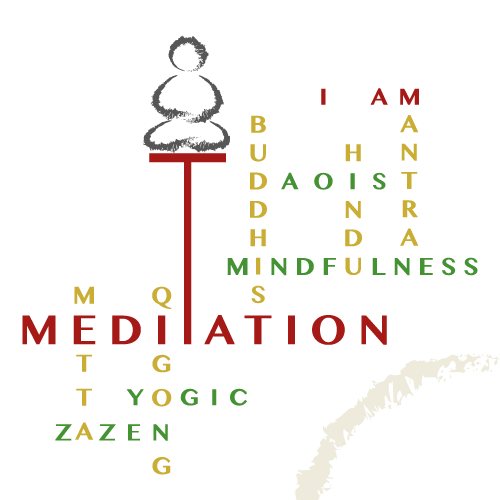
- Learn how to become calm and free from stress and anxiety
- Become healthier because you have learned to let go of stress, worry, and anxiety, even panic!
- Do you find yourself worrying or even panicking about things that you have no control over anyway?
- Would you like to become free from health issues caused by your chronic stress?
Limitless Life-Calm and Free Online Meditation Course
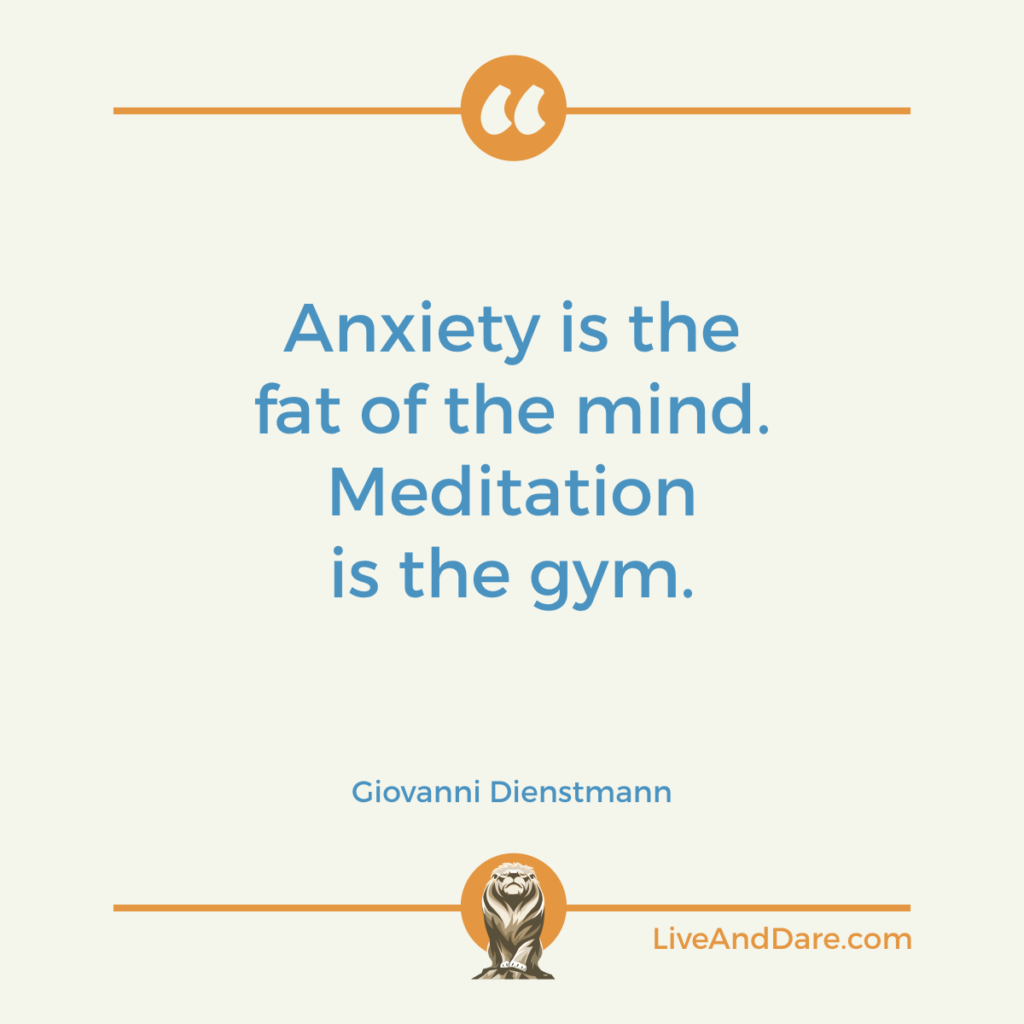
Some people think that “anxiety” is what you have if you can’t function in life, can’t leave home, are constantly paralyzed by fear, and need medication just to be able to live kind of normally.
That is only one of the faces of anxiety, in its most debilitating form.
In a broader sense, anxiety is a very common mental pattern that affects millions of people, on one level or another. It’s a challenge to overcome in our journey as human beings.
Here is another expression of anxiety, much more common but equally troublesome:
I wake up in the morning to the sound of my alarm clock. Cannot believe that it’s time to get up already… I feel tired and demotivated as if I have barely slept.
The last thing I remember is rolling on my bed, again and again, trying to fall asleep, while my mind is spinning fast with all sorts of nonsense.
I don’t want to wake up right now. There are many challenges waiting for me, and I don’t know what to do. Stuff I have to figure out…
I worry about my financial situation, mortgage, and health habits. Thinking about my relationship and how it may fall apart and leave me in a bad situation. I ask myself if I’m about to lose my job and if I’m in the right place in life.
There is sometimes a sense of guilt that I’m not the best parent I can be. Feelings of regret also for not going after my goals consistently. This is not how I expected things to turn out, and I know I’m missing out on a lot. I don’t know what to do about it.
Ah, and I will soon need to have that difficult conversation at work. I repeatedly rehearsed it in my mind and wondered what people will think of me.
I can feel a sense of tightness in my chest and shoulders and a knot in my stomach as I do that. My heartbeat goes up. My mouth is dry. It doesn’t feel good.
This background noise of worry, stress, and anxiety has been there for a while now. I’m not enjoying where I am in life, and I rarely feel a sense of fulfillment at the end of my day.
I know that a lot of this doesn’t make much sense and that many of my fears are irrational. But still, I can’t stop it. It’s like my mind has a life of its own, and it doesn’t listen to me!
What’s wrong with me? Will this ever go away, or is it just the way I am wired?
[The alarm goes off again.]
If I could I’d call in sick, come up with an excuse, and take a day off to myself—to avoid all this mess. But even if I do that, my mind will not cut me any slack, so I’d better just get going and get busy with my day. Perhaps it will go away by itself…
— Diary of an anxious human
Does any of that sound familiar at all?
Perhaps you struggle with similar challenges, but nobody can tell. They all think that you’ve got it all together. But inside, you know that you are walking on thin ice. Simple things are not so easy anymore, and every day takes a lot of effort. You’re not happy.
If any of that resonates, keep on reading. Having full clarity about the problem is the first step in solving it.
Is this really a big deal?
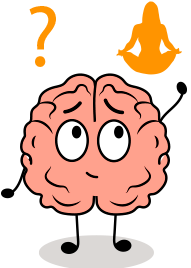
It is possible to live without anxiety. And once you fully understand the consequences of stress, you will have the needed fuel to overcome it.
We know the physical symptoms of anxiety: the heartbeat goes up, you may sweat or have a dry mouth, and there is tension in your body (usually chest and shoulders). Some also feel a knot in their stomach, dizziness, or agitated breathing.
However, the mental and emotional symptoms can be harder to detect, as anxiety can appear in disguise. So let’s now pull down the curtains and understand this better.
Anxiety is often at the root of the following problems– how stress affects the body
Procrastination & Avoidance
Anxiety triggers feelings of discomfort and fear in certain circumstances. To escape that, you may go into avoidance, all the time convincing yourself that “you better not go,” “you don’t need to say that,” or “better not even try.” Or you may fool yourself by saying, “yes, I’ll do it later,” and procrastinate without end.
Addiction & Emotional Eating
Anxiety is a stressful, emotional state. To escape it, you may engage in addictive behaviors that give you a short-lived relief from anxiety but don’t solve anything. Examples: drinking, gaming, shopping, internet addiction. These bring a lot of side effects, damaging your health, wasting time and money, and draining your motivation.
Lack of Focus
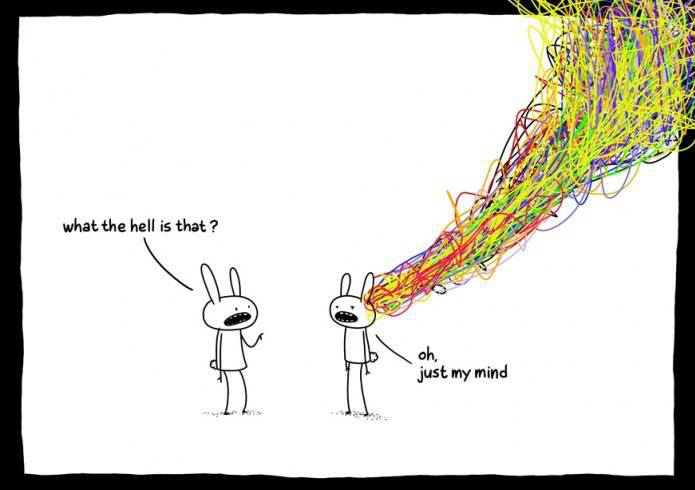
When your mind is busy with so many thoughts, it is hard to make it focus on a single task for any amount of time. As a result, your work performance suffers and your ability to be present in your relationships and be a good listener.
Restlessness & Agitation
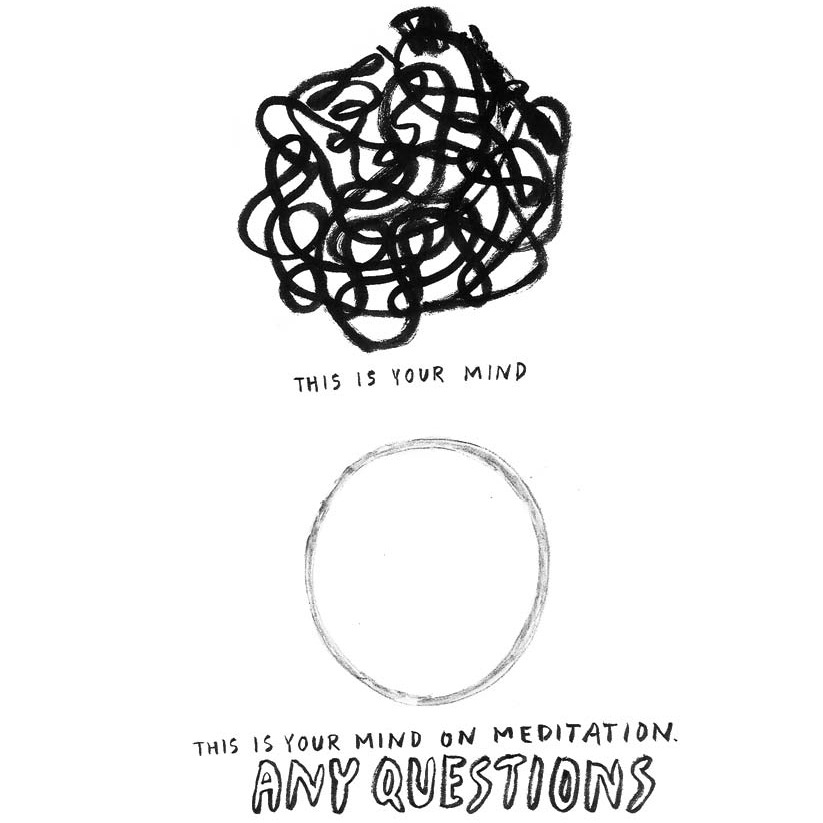
The meditation masters say that “our mind is like a drunken monkey, jumping from branch to branch.” Anxiety is part of that fuel, making our energy move in a thousand directions without a center and rest.
Stuckness
It is normal to feel stuck in life when you are constantly anxious about what will happen. Whatever options you consider, your mind focuses on the negative and tells you a bad story. There is a sense of wanting to get out of this, but you don’t know how.
Low Energy
Thinking takes energy. Anxiety wastes your energy by creating thought spirals that lead nowhere and repeat day after day. As a result, you have less power available for the essential things in life.
Poor Sleep

A lot of people struggle with sleep problems nowadays. Anxiety keeps your mind busy at night, making it hard to fall asleep and preventing you from sleeping deeply. You may have the best bed and night-time routine, but sleep eludes you if you can’t relax and turn off your mind.
Low Self-Confidence
Anxiety makes you worry too much about your performance, what others will think about you, and what will happen. As a result, you lose confidence in yourself and your abilities. You are unsure about taking action and showing up because you don’t want to risk failure and disappointment. There may also be a sense of low self-esteem, that “I’m not good enough.”
Regret
When your mind is busy with anxiety, it becomes noisy and foggy. It is then harder to think, see all your options, and make good decisions. As a result, you often make decisions that you later regret. Or you may fail to take advantage of the opportunities in your life.
Tension & Stress
Stress is often the cause of anxiety, but anxiety further spins the wheel of stress. Our mind becomes a significant source of stress in our life. On the other hand, the tension in your body—especially the chest, neck, and shoulders—can be a symptom of underlying anxiety.
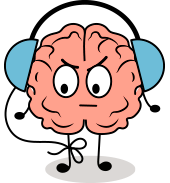
Irritability
Anxiety can make you moody and less resilient. You have less space in you because your mind is engaged with a lot of negativity. Things look worse than they are. Anxiety makes you feel that you are not in a happy place, the world is full of dangers, and things often go wrong. As a result, you get irritated more frequently and become very reactive.
Insecurity & Self-Doubt
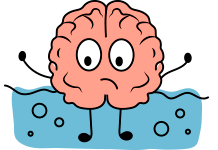
Anxiety may prompt you to constantly doubt yourself and feel that you are not good enough. It makes you overestimate the “dangers” out there and underestimate your capacity to deal with life’s adversities. As a result, you feel disempowered.
Any of the above challenges is already enough to make your life more difficult. They can affect your health, finances, work performance, and even your relationships.
If you are reading this page, you probably struggle with at least one of these challenges. I’ve been there too, and I know it sucks.
Maybe you got used to it. Perhaps anxiety—although painful—became like a comfort zone for you. It’s “the hell you know”…
Please don’t do that! You are limiting yourself.
Life will be much better once you learn to overcome (or at least better manage) anxiety. It’s possible, and I’m here to show you how!
In summary:
- Anxiety limits you in many ways—and it’s a bigger problem than you might have considered.
- Overcoming anxiety will be a big shift in your life (more about it soon).
- Overcoming anxiety is worth every effort. You owe it to yourself!
Anxiety: The Symptom of a Larger Problem
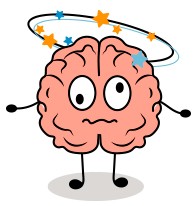
As you saw, anxiety is at the root of many other challenges in our life.
And if we dig deeper, we will see that anxiety is the symptom of a more significant problem: lack of mental and emotional fitness.
We know very well the importance of physical fitness. But most people are not fully aware of how important mental fitness really is.
It’s even more important than physical fitness… Because if your body is healthy and robust, but your mind is suffering, you are not well at all.
On the other hand, it’s possible that your body is sick, but your mind is still healthy and happy (many of us have been there).
So your mind is the most crucial element in your life. Your mind defines how you feel, what you do, and who you become. It determines if you are having a good day or a bad day. Your mind is the glasses through which you see life and see yourself.
Your life is as your mind is.
- No physical fitness —> you get sick, fat, and old.
- The end result is low energy and death.
- No mental fitness —> you get anxious, stressed, disempowered.
- The end result is regret and suffering.
Anxiety can be overcome if you work on your mental and emotional fitness.
Just like you need good nutrition and regular exercise for your body, you also need good nutrition and regular exercise for your mind. Your mind needs a gym to remain fit, strong, and healthy.
Wisdom is the nutrition of the mind, and meditation is the exercise of the mind.
If you hear the call and decide to take care of your mental fitness, then a new life is possible.
The Calm, Centered, and Focused Life
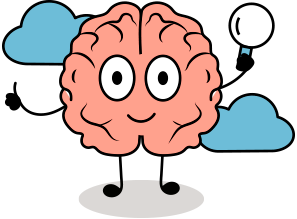
What happens if you start taking good care of yourself, of your mental and emotional fitness? Anxiety and stress decrease, and well-being increases.
Here is what a diary entry could look like in the life of the anxious human, after a good dose of mental fitness.
I wake up feeling well-rested and replenished, after a good night of sleep. My body feels relaxed and light.
The thought comes that I have some pretty challenging things coming up for me today at work. My mind goes around that a little bit, but then I decide to get up and do my short morning meditation.
After meditating, I feel calm and clear. There is this sense of ease and flow in my body. Meditation gives me a sense of control over my mind and my life. There is this distance between me and my thoughts, so they are easier to manage.
This makes me feel more confident that I will be able to deal with whatever challenges show up today because I know my strength and trust myself. As a result, there are fewer things to worry about.
I then remember how things used to be for me. I was not in a good place and didn’t have a strong center—even though I could not fully see it at that time. It feels like I was living inside a cage of my own making.
Now things are pretty different. I’m engaged in a journey of growth and self-transformation with other people. I take better care of myself, have the energy for my goals and priorities, and feel happier with who I am.
My moods are much more stable. I’m less reactive and consistently feel better under my skin. There is a sense of calm and contentment in the background, no matter what happens. I’m more optimistic and feel more in control of myself and my life.
Even when negative thinking comes up, or if anxiety tries to raise its head, I know exactly how to deal with it. Anxiety and stress don’t define me anymore. I choose who I want to be, moment after moment.
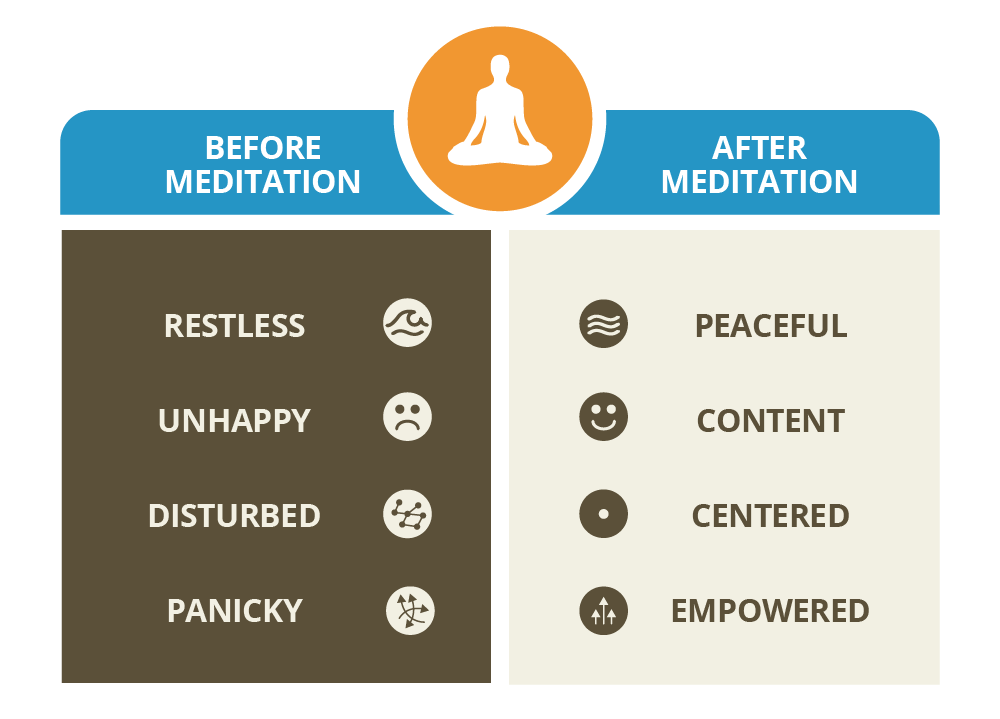
I finish my day feeling satisfied, and looking forward to tomorrow.
This type of transformation happened to me. It happened to many others.
With the right tools, guidance, and support, it can happen for you too!
Your Options
“Yes, I want to believe that it’s possible, but I’ve tried some things and nothing really worked…”, I heard you say.
Now that you are more aware of all of this, you have a decision to make: “What will I do about it?”
Let’s consider your options, using the mind gym as a metaphor:
Do Nothing
Forget about mental fitness, and hope for the best.
- Pros
- Takes no effort.
- Cons
- Nothing will change. If anything, the situation tends to get worse over time.
Medication
Take the “lose weight while you sleep” pill!
- Pros
- Takes no effort, and can give some immediate relief.
- Cons
- Doesn’t address the underlying causes, but just manages the symptoms.
- Often includes side effects such as fatigue, upset stomach, drowsiness, confusion, dizziness, muscle weakness, and sexual dysfunction.
- There is a risk of becoming dependent, and each time needing higher doses to achieve the same effects.
- Ongoing costs ($30 a month and up).
Therapy
Hire a personal trainer
- Pros
- Very individualized and supported.
- Can be effective if you find the right professional for you.
- Cons
- Can take a lot of time and be very expensive.
- Sometimes involves a lot of talking, but no practical tools to really overcome anxiety.
Books & Apps
Buy the weights to exercise by yourself at home.
- Pros
- Low cost
- Can work really well if they are high quality, and you have the discipline to stick to daily practice on your own.
- Cons
- No support and no accountability.
- There can be a lot of trial and error before you find good sources.
- Most people give up after some time, before experiencing the real benefits.
You may find, like many other people, that none of these options are that great.
Allow me to show you a different way: meditation and conscious living.
These are natural methods that positively affect your life as a whole.
Meditation for Anxiety
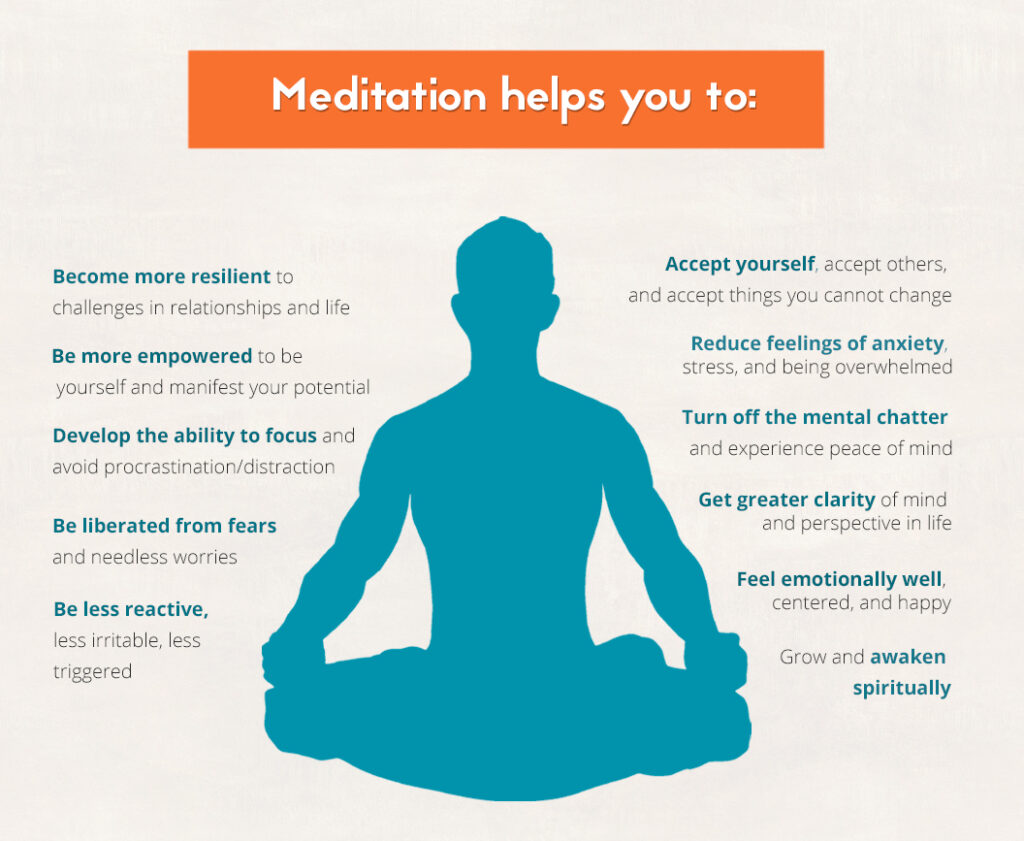
Meditation is a proven way to manage anxiety effectively. It doesn’t have the costs associated with therapy or the side effects of medication.
Scientific research suggests that meditation and mindfulness are as effective as drugs in treating anxiety, depression, and chronic pain (but without those nasty side effects!). And it doesn’t need to take too long. Studies show that a single meditation session (done right) is already effective in diminishing anxiety.
That is why millions of people are trying meditation. Many doctors and therapists actively recommend it to people struggling with anxiety, stress, and depression. I’ve helped several people who came to me to learn meditation after all other methods had failed them.
Here are some of the ways meditation is helpful against anxiety and stress:
- Diminishes the influx of thoughts and stimuli
- Allows you to relax deeply, and release all tensions
- Gives you the ability to pause, re-center, and slow down
- Changes your relationship to your thoughts and emotions
- Teaches you how to accept yourself, and accept uncertainty
- Gives you greater control over your mind
- Shows you how to let go of negative narratives
- Gives you access to a sense of contentment and peace, no matter what
The only challenge is this: you need to find the best meditation technique for you, practice it daily, and integrate it into your life. I call these the Three Pillars of Meditation (technique, habit, and integration).
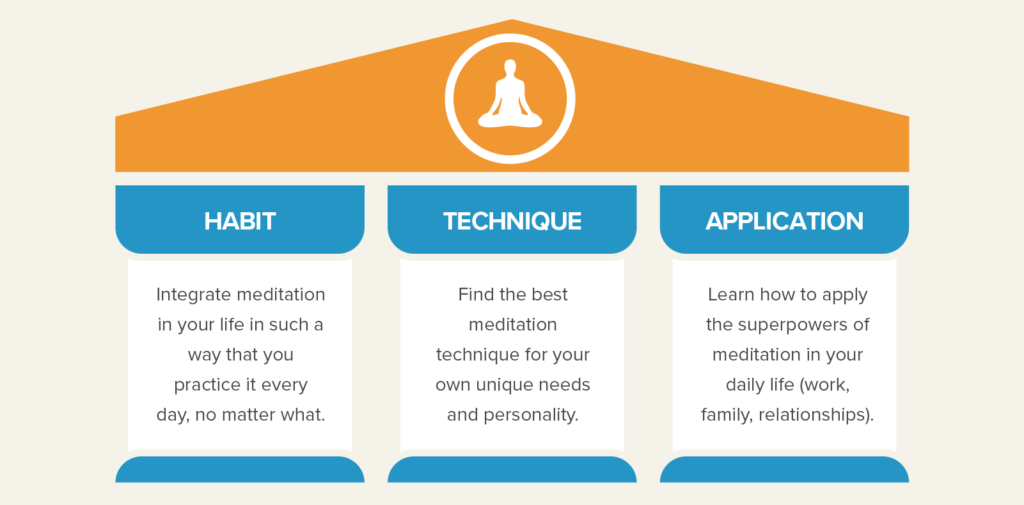
Only when you do that will you find consistent benefits and be able to apply the superpowers of meditation to your daily life.
Very few people can develop these three pillars on their own. And if they can, it is only after a lot of effort, trial and error, study, and self-discipline. That’s just too hard for most of us.
The good news is that there is an easier way to have it all broken down for you in easy daily steps with the support of a community and teacher.
The Limitless Life Program
— Overcome Anxiety and Stress. Become Calm, Centered, and Focused —
Limitless Life is the easiest way for you to start, grow and integrate a powerful meditation practice so that you can finally overcome anxiety and live a more calm and centered life.
It goes deeper than a meditation app, and it is more actionable than a book.
Think of it as a gym membership for your mind and heart. It is a collection of online classes, challenges, and meditations that will help you develop mental and emotional fitness and experience all the benefits that come with it.

What happens in the Program?
- Once you join you will begin Phase 1 of Limitless Life (creating a daily meditation habit).
- Every day you will receive a lesson that is short, effective, and easy to follow.
- The techniques integrate the wisdom of the West and East and are presented in a way that is practical and engaging.
- Step by step, you will progress through the Eight Phases of the program, together with your peers, at your own pace.
- As you move forward, you will find your ideal meditation technique, learn how to let go, develop courage, and much more.
- You can ask me questions any time, and learn from the experience of other members in the forums.
- You can pause or cancel the program at any time.
Limitless Life is more than a meditation course.
It is a tribe. A community of conscious people committed to living with wisdom and awareness.
It is an invitation to a new way of living. A movement from scattered life to a centered life. From automatic living to conscious living. From anxious to calm and empowered.
Maybe this isn’t for you. Maybe you want something else, or are not yet ready to begin this journey—that’s okay.
But if this resonates, and if you see what’s possible, then I invite you to join right now.
(Include: If you have any questions or concerns about the course, email me anytime) Lesahammond@1111newme.com

Limitless Life teaches more than meditation. It includes complimentary tools that allow you to take your practice to the next level.

But for it to be effective, you need to find the best technique for you, practice it daily, and integrate it into your life.
You can try to do that on your own, or you can join Limitless Life, and we’ll do it together. That’s the shortcut.
TESTIMONIALS–
Dank W
Giovanni’s meditation teachings produced more results for me in five weeks than the previous 30 years of haphazard guesswork. I couldn’t have done this on my own, and I had tried for several years. His course changed my whole attitude toward life in general and brought a sense of effortless peace and silence into my days.
Chantel Stucki
Giovanni’s course is put together SO well. Better than any other meditation course or holistic seminar I’ve done so far.
Chiara Pani
I’ve dealt with severe depression and anxiety. I tried therapy and medications but nothing worked like meditation. With Limitless Life, I’ve found my path. The courses went far beyond my expectations and taught me to master my mind more efficiently.
What if I don’t like it?
If you feel this hasn’t met your expectations, you can easily unsubscribe from Limitless Life at any time, with a couple of clicks.
Besides, I’ve got you covered with a 30-day money-back guarantee. Try it for a month, and if you didn’t like it, get all your money back. You’ve got nothing to lose!

The problem is that using this heavy shield comes with a cost. Its handles are full of thorns, so you bleed whenever you bring it up.
The solution, then, is to not carry around the shield of anxiety all the time. You’ve tried that, and it’s costly.
Be a cautious person, yes. But don’t spend all your time looking for dangers to defend yourself against; nor should you trouble to defend yourself against every blow of life. You are stronger than that!
Shift from trusting in your anxiety as a protective mechanism to trusting your resilience. Trust yourself, not your fear. You are stronger than you may think.
Drop your shield. It is hurting you more than it is saving you. Give yourself a chance to try something different. You will not be disappointed. Hit the button below and take back your life from Stress and Anxiety.
Go Ahead and Click the Button Below!
Disclosure: Bear in mind that the button link above in this post is an affiliate link and if you make a purchase I will earn a commission at no extra cost to you. Keep in mind that I link this company and its products because of their quality and the positive impact they have on people’s lives, and not because of the commission I receive from your purchases. The decision is yours, and whether or not you decide to buy something is completely up to you.
How to Meditate for Anxiety https://1111newme.com/2021/02/26/how-to-meditate-for-anxiety/
Source: Stress symptoms: Effects on your body and behavior http://Stress symptoms: Effects on your body and behavior
Stress Effects On the Body https://www.healthline.com/health/stress/effects-on-body
